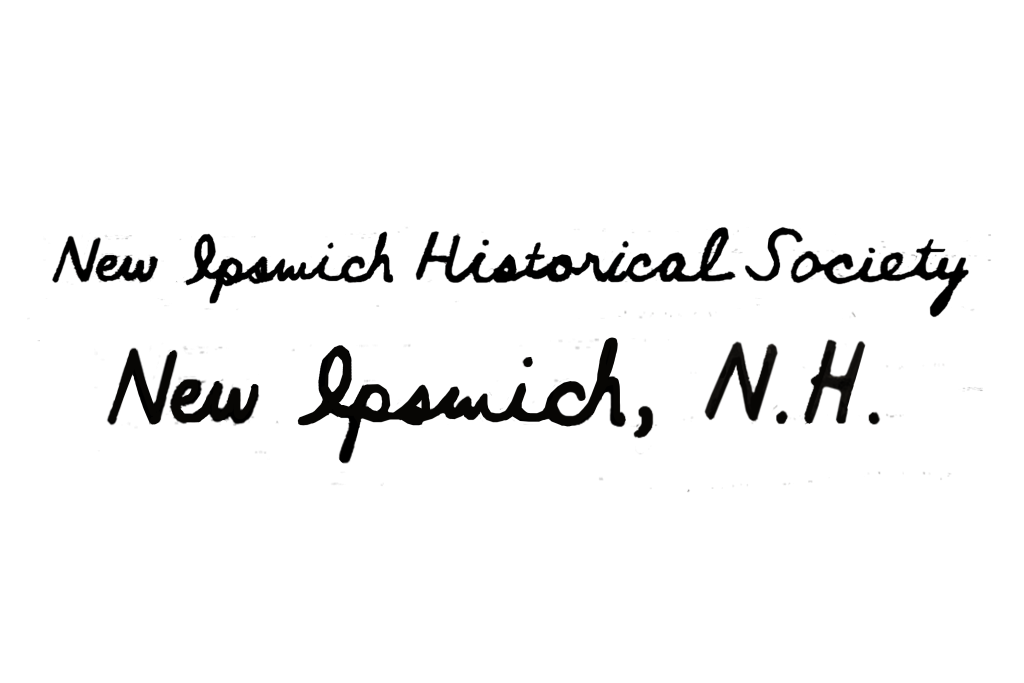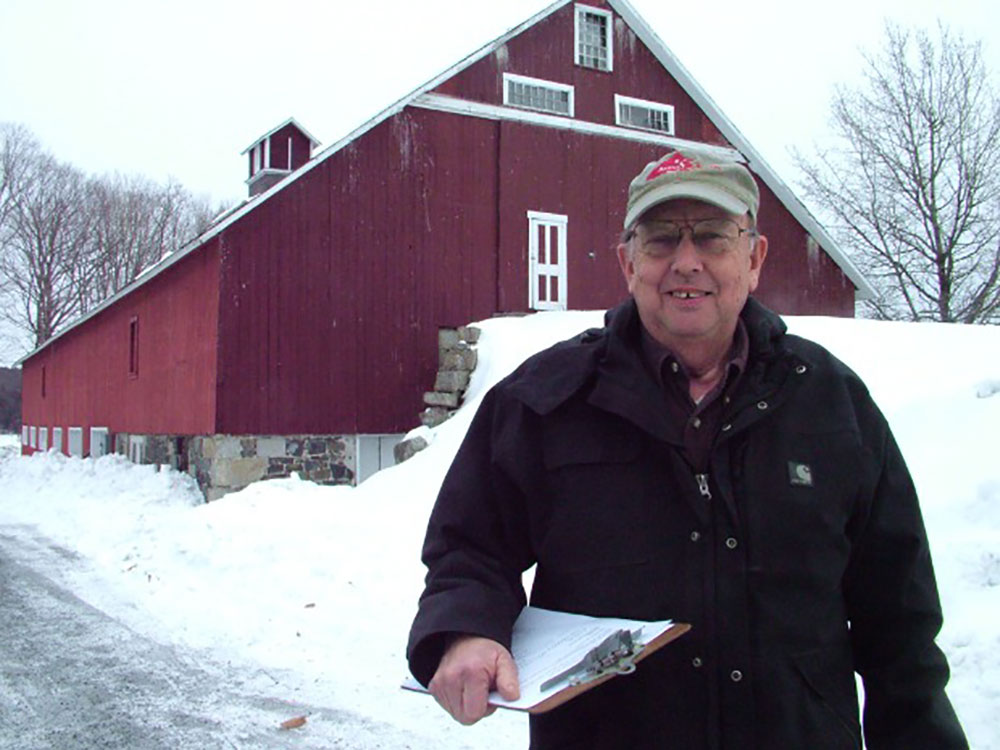The History of Agriculture as Told by Barns
presented by John C. Porter
New Ipswich Historical Society Annual Meeting and Program
Barns can tell us a great deal about the history of agriculture. In the colonial period, NH was rural and agrarian with small subsistence farms dotting the landscape. An important feature of these farmsteads was the barn, which housed animals and stored crops. Early barns used traditional building methods and followed the English barn style, with a low pitched roof and
doors under the eaves. As time went on, barns expanded from the early English style to Yankee style, gambrel, and pole barns. Illustrated with photos of NH barns, this presentation will follow the progression of barn styles that evolved to handle the increasing productivity required to meet the needs of a growing population and respond to societal changes created by the railroads and the Industrial Revolution. John C. Porter will demonstrate how these majestic barn structures represent Yankee ingenuity, hard work, and skilled craftsmanship,
as well as provide a link to our past and add to NH’s scenic beauty.
A popular presenter of programs offered by NH Humanities, John C. Porter was raised on a dairy farm in Lebanon, NH. After earning his BS and MS from UNH and Cornell University respectively, he served as a Dairy Specialist for the UNH Cooperative Extension from 1974 until his retirement in 2006. He continues to work part-time for UNH and operates his own consulting company, Farm Planning Services, LLC. In 2001, he co-authored Preserving Old Barns; in 2007, served as editor and contributing author of The History and Economics of the
New Hampshire Dairy Industry; in 2011, wrote the agriculture chapter for the Concord History Crosscurrents of Change; in 2019, published the second edition of Preserving Old Barns, and in 2020, co-authored an addendum to a dairy history, The New Hampshire Dairy Industry.


Leave a Reply